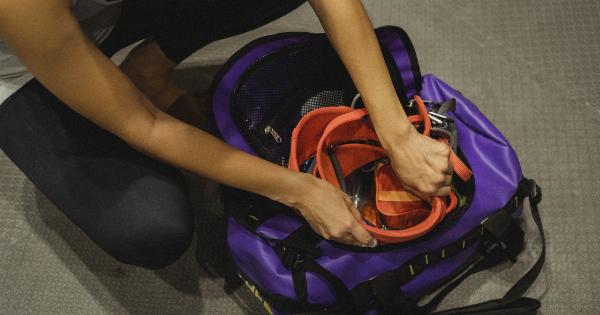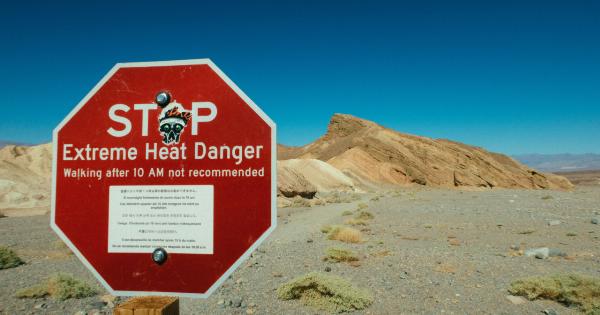Summer days bring sunshine, backyard barbecues, and trips to the beach. While the warmer weather can be enjoyable for many, it can also put a strain on our bodies.
Heat-related illnesses are a real concern during hot weather, and it is essential to recognize the signs that your body may be struggling to cope with the heat. By staying vigilant and taking appropriate precautions, you can protect yourself and your loved ones from heat-related health risks.
1. Excessive Sweating
One of the most apparent signs that your body is struggling with heat is excessive sweating. Sweating is a natural mechanism our body uses to cool down.
When the temperature rises, our sweat glands produce more sweat, which evaporates from our skin, taking heat away from our bodies. However, if you find yourself drenched in sweat even when you are not engaging in strenuous physical activity, it may be a sign that your body is having difficulty regulating its temperature.
2. Dizziness and Lightheadedness
Feeling dizzy or lightheaded can be a warning sign that your body is struggling with heat. When exposed to high temperatures, blood vessels dilate as the body tries to release heat.
This leads to a drop in blood pressure, resulting in feelings of dizziness or lightheadedness. If you experience these symptoms, it is vital to find a cool, shaded area and drink plenty of fluids.
3. Muscle Cramps
Heat cramps, characterized by painful muscle spasms, are another sign that your body is struggling with heat. Sweating depletes the body of essential electrolytes like sodium and potassium, which are necessary for maintaining muscle function.
When these electrolytes are not replaced, muscle cramps can occur. If you experience muscle cramps, take a break from physical activity, move to a cooler area, and rehydrate with fluids that contain electrolytes.
4. Nausea and Vomiting
Heat exhaustion, a more severe heat-related illness, can manifest with symptoms such as nausea and vomiting. When we are exposed to high temperatures, our bodies redirect blood flow to the skin surface to facilitate heat loss.
This can compromise blood flow to other areas, including the digestive system, leading to feelings of queasiness and potentially vomiting. If you experience persistent nausea or vomiting, it is crucial to seek medical attention as heat exhaustion can progress to heatstroke.
5. Fatigue and Weakness
Heat can drain our energy levels and leave us feeling fatigued and weak. When the body works hard to regulate its temperature in hot weather, it can result in increased metabolism and fluid loss. As a result, we may feel tired or experience weak muscles.
If you find yourself overly exhausted or lacking strength, it’s important to rest in a cool environment and replenish your fluids.
6. Headaches
Headaches can be a sign that your body is struggling to cope with heat. High temperatures can cause blood vessels to expand, leading to increased blood flow to the brain and, in turn, triggering headaches.
Dehydration, another common consequence of hot weather, can also contribute to headaches. If you experience persistent or severe headaches, it is crucial to seek relief in a cool, shaded area and drink plenty of fluids.
7. Rapid Heartbeat
A rapid heartbeat, also known as tachycardia, can be an indicator that your body is struggling to handle the heat. As our bodies try to cool down in warm weather, our hearts pump more blood to facilitate heat transfer.
This increased blood flow can lead to a faster heart rate. If you notice your heart racing or beating irregularly, it is essential to seek shade, rest, and drink water or electrolyte-rich fluids.
8. Confusion or Disorientation
Heatstroke, the most severe form of heat-related illness, can cause confusion or disorientation. When our bodies overheat, it can affect brain function and cognitive abilities.
If you or someone around you experiences confusion, disorientation, slurred speech, or any other sudden change in mental status, call for emergency medical assistance immediately. Heatstroke is a life-threatening condition that requires immediate medical attention.
9. Pale or Clammy Skin
A change in skin appearance can be an indication that your body is struggling to cope with heat. Very pale or clammy skin may suggest that blood is being redirected to your body’s core to protect vital organs, compromising blood flow to the skin.
If you notice a change in your skin color or texture, move to a cooler area, seek shade, and hydrate promptly.
10. Fainting
Fainting, or syncope, can be a severe consequence of heat-related illness. When our bodies overheat, blood can pool in our extremities as blood vessels dilate. This can result in a decrease in blood flow to the brain, leading to a loss of consciousness.
If you feel lightheaded or dizzy and believe you may faint, immediately sit or lie down in a cool area, preferably with your legs elevated. If someone loses consciousness, call for emergency medical assistance without delay.
Conclusion
Recognizing the signs that your body is struggling with heat is crucial for your well-being, especially during the hot summer months.
If you identify any of the symptoms mentioned above, take immediate action to cool down, hydrate, and seek medical assistance if necessary. Remember to wear appropriate clothing, stay in shaded areas, and limit strenuous activity during peak temperatures to minimize the risk of heat-related illnesses.
By paying attention to your body’s signals and taking proactive measures, you can enjoy the summer safely and beat the heat.




























